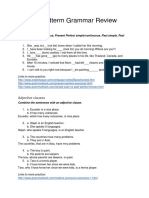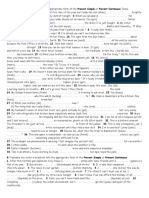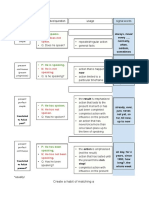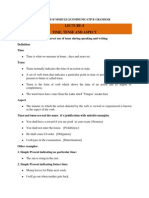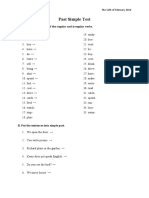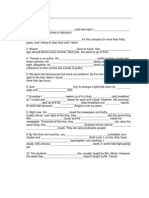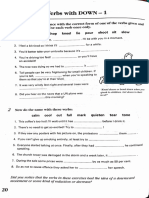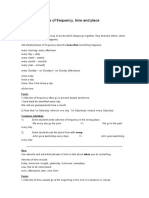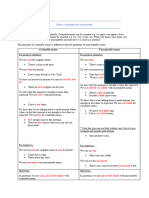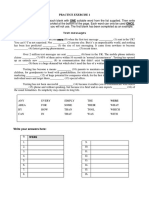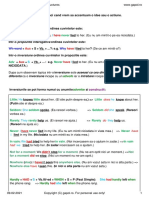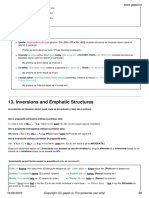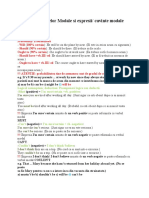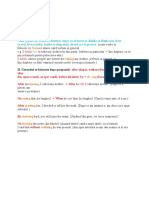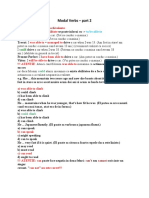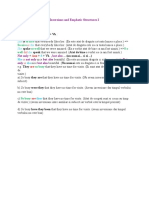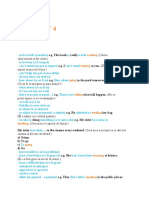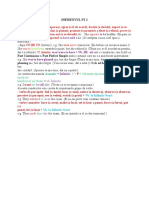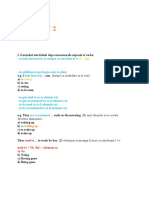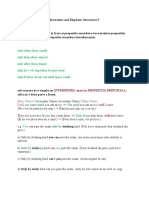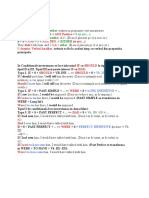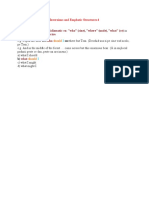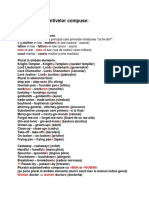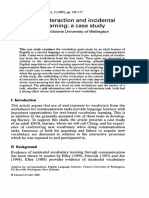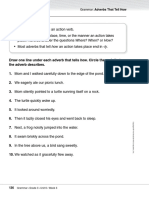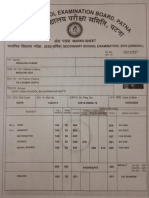0% found this document useful (0 votes)
190 views2 pagesInversions and Emphatic Structures 1
This document discusses emphatic structures in English known as inversions. It explains that inversions are used to emphasize an idea or action by changing the typical word order in a sentence. Specifically, an inversion places an adverb before the auxiliary verb and subject. Some adverbs that can be used in inversions are little, seldom, rarely, never, in vain, hardly, scarcely, and barely. The document provides examples of sentences with and without inversions. It also discusses constructions using hardly, scarcely, barely, and no sooner that require an inversion when used with past tense verbs.
Uploaded by
Angela FaurCopyright
© © All Rights Reserved
We take content rights seriously. If you suspect this is your content, claim it here.
Available Formats
Download as DOCX, PDF, TXT or read online on Scribd
0% found this document useful (0 votes)
190 views2 pagesInversions and Emphatic Structures 1
This document discusses emphatic structures in English known as inversions. It explains that inversions are used to emphasize an idea or action by changing the typical word order in a sentence. Specifically, an inversion places an adverb before the auxiliary verb and subject. Some adverbs that can be used in inversions are little, seldom, rarely, never, in vain, hardly, scarcely, and barely. The document provides examples of sentences with and without inversions. It also discusses constructions using hardly, scarcely, barely, and no sooner that require an inversion when used with past tense verbs.
Uploaded by
Angela FaurCopyright
© © All Rights Reserved
We take content rights seriously. If you suspect this is your content, claim it here.
Available Formats
Download as DOCX, PDF, TXT or read online on Scribd
/ 2



